
Nursing has always been a noble profession. We have been voted the most honest and ethical profession by the Gallup poll for the 16th consecutive year in a row!
We sacrifice our lives to care for others, but that caring often pushes us to the edge of burnout. Unfortunately, burnout is all too common among us, which is why when I read quotes from Florence Nightingale, it helps me to recenter and refocus on why I was compelled to become a nurse.
In Florence?s day there was very little nursing training at all. When she arrived to help, she was not welcomed with open arms. She walked into filth, wards overrun by rats, shortage of food and the animosity of doctors who resented her leadership. Her legacy continues because she inspires through it all.
Florence?s words are a testimony to her strength and character and still support us through our challenges.
I wanted to share 15 of my favorite quotes by Florence Nightingale that will help you get through your day and to remember why you are always giving so much.
#1 The martyr sacrifices themselves entirely in vain?.
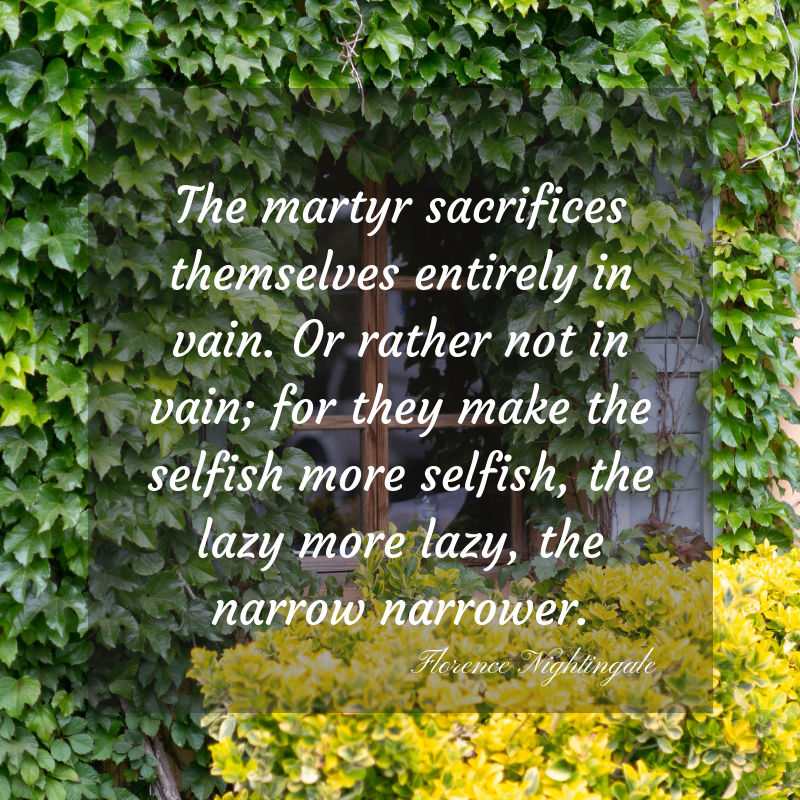
Have you ever had the experience where you were working your butt off on the unit while everyone else was sitting around watching cat videos on Facebook? There was so much work to be done, so you forged on. You led by example, but no one got up to help.
Florence has been called a lot of things, but a pushover was not one of them. She recognized that everyone needed to pull their weight and the key was to ask for help.
On the units, we don?t always ask for help because we don?t want to bother others, or we think we should be able to do everything ourselves.
Sure we want everyone to naturally pull their own weight, but if they don?t you have to ask for help. Being the martyr only leads to your own burnout ? and it doesn?t affect anyone else if you burnout.
#2 Were there none who were discontented?

Discontented nurses have changed the world. Florence Nightingale was devastated by the death of soldiers from minor wounds in the Crimean War, so she mandated a clean environment.
In the 1930s Nurse Elizabeth Kenny disagreed with casting limbs in patients with poliomyelitis. She used warm compresses and passive range of motion with exponentially improved results. She became the founding mother of physical therapy.
In 1950 Nurse Jean Ward was heartbroken by the high rate of infant death due to jaundice. She discovered that a few hours in the sun could cure this condition.
In 2014 Nursing Student Fatu Kekula was about to lose her family to the ebola virus because no medical personnel would come near her house. She discovered the ?trash bag method? and was able to care for her family without getting sick. They all survived the ebola crisis thanks to her and now other ebola patients receive treatment.
In 2015, Nurse Rebecca Koszalinski was moved when patients with cerebral palsy lost their ability to communicate, so she developed an app that gave them their voice back.
#3 Never dispute with anybody?

Florence understood that if someone contradicting her it was a power move. People who contradict you are trying to gain control over the situation and over you. You can?t reason with them and even if you prove them 100% wrong, you still lose.
It?s best to save your energy and don?t waste your time on people who are chronic arguers. People who constantly contradict others use it as an ingrained defence mechanism.
They will only change if they want to change, it?s not up to you and it?s not worth your time and efforts. Either find another topic of conversation or find a new audience.
#4 How very little can be done under the spirit of fear.
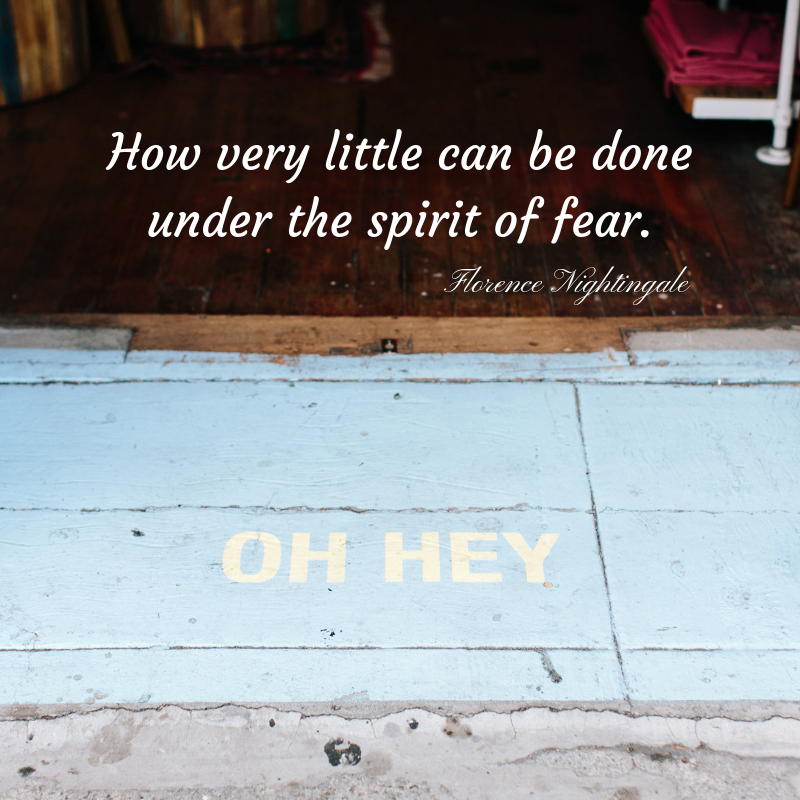
Have you ever had a nurse manager who tried to lead the unit through fear ? fear of losing your job, fear of speaking up, fear of being humiliated in front of others?
While this type of control may work initially to shut someone down, another more sinister problem ensues. It breeds distrust and anger among the nurses. The unit stops working together, they start reporting each other. Nurses begin to look for other jobs and leave because the culture of fear is exhausting.
Instead of being productive and making a difference, nurses are watching their back, doing the bare minimum and working under the radar. This is one of the least effective ways to manage others.
#5 To be ?in charge??
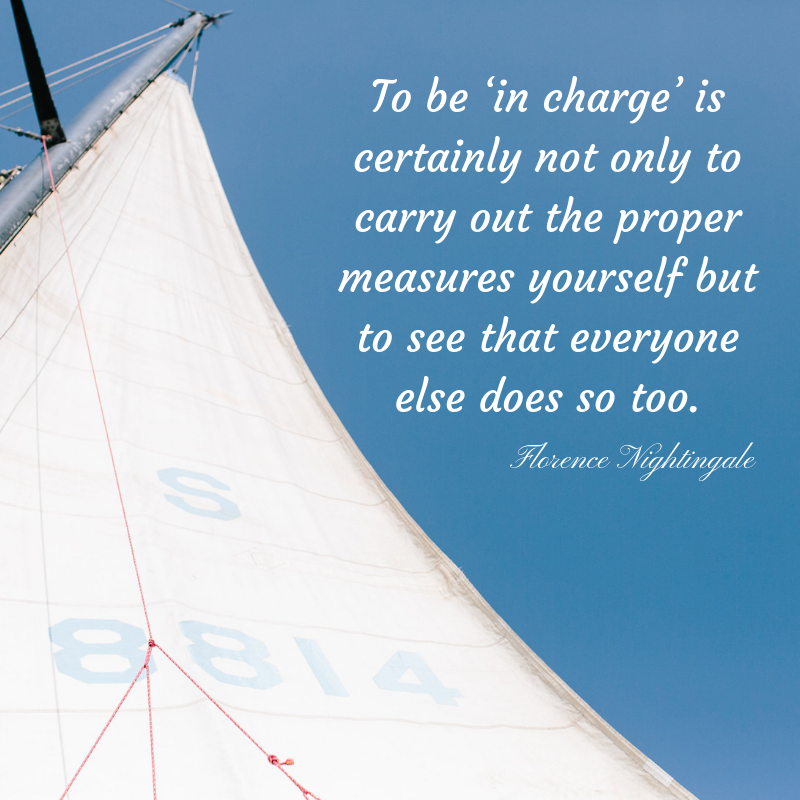
Having leadership qualities is essentially about showing people how to get things done. This doesn?t mean you do everything yourself or nothing yourself.
In the Crimean War, Florence couldn?t have been effective without the contribution of her nurses. She assigned everyone roles to carry out. When someone knows what they are supposed to be doing, the work can get done quicker.
If you can?t communicate what needs to be done, you will have chaos.
#6 The very first requirement?

Florence was the one of the first to recognize that mortality rates of patients inside the hospital were actually higher than those who received care outside of the hospital.
Florence saw a tremendous amount of unnecessary suffering and death. She knew that decisions made in practice, even the small ones could have major consequences.
Teaching simple things such as hand washing and maintaining a sanitary environment proved to save more lives than any medicine or medical intervention was able to do.
#7 People say the effect is only on the mind…

One of the reasons nursing is such a powerful profession is because of its ability to intervene emotionally on behalf of the patient and allow them to discover their imbalance through explorations of their fears.
Nurses know that anxiety, pain and suffering are as detrimental to the body as any disease process. They also know that these qualities can exacerbate and accelerate disease.
Florence once again was a century or two before her time in reflecting on the mind-body connection.
#8 For the sick it is important to have the best?

Florence Nightingale wanted women of strong character and who weren?t afraid to speak up or care. When you are caring for the sick, a person wants you to be there for him or her.
The sick are not typically able to identify what is best for them or know how to achieve it. Nurses can see the bigger picture and are able to advocate on their behalf.
#9 Everything is sketchy…

Florence meant that nothing is entirely clear. We are always working on sketch of an outline. We never see the entire picture until it?s completed.
This resonates with nurses because we don?t always see our impact fully one patient at a time. Our careers are a combination of sketches of patients that we have cared for.
In 5 years, most nurses will have cared for over 10,000 patients. It?s only as you look back that you see how your sketch really has been a masterpiece in the making.
#10 Apprehension, uncertainty, waiting?
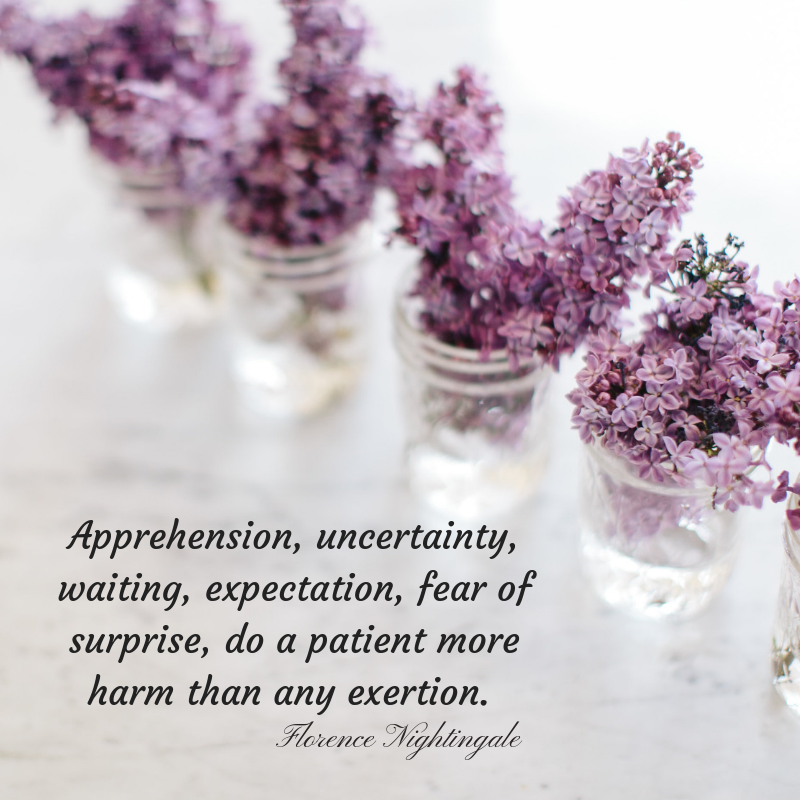
We all know this intuitively. Imagine waiting to find out if you have cancer. Your entire life as you know it in the balance. You start imagining how your kids will feel living without you.
The mind does not differentiate emotion differently in a pretend state versus reality. For instance, if you watch a sad movie and cry, your brain experiences sadness. If you watch a scary movie and you are scared, it doesn?t matter that it?s just a horror flick, you brain experiences fear.
What you believe is real, is real and what you feel is real. It doesn?t matter if it?s on TV, in a book, or made up in your mind.
Protecting patients is what nurses do best. Explaining and informing patients of their condition and their care is vital.
#11 I attribute my success to this?

We all know people who have an excuse for everything, myself included! I would?ve won if? I would?ve had X but?
People who are successful accept their failures and learn from them. They find a way that does work and they don?t waste their time giving excuses of why things didn?t work.
Florence became a very powerful single woman in her time, a highly unusual feat for a woman of the 1800s. Her success would be considered remarkable today as well, but her process was simple to never give or take an excuse.
#12 I think one?s feelings waste themselves in words?

We?ve all had that experience of drowning out our sorrow with words. Feeling sorry for yourself or basking in loss needs to be a limited time occurence. We also have a tendency to complain about things, but not provide solutions to the problem.
As Florence says, instead of complaining about the problem, offer up solutions.
The only way to fix a problem is to create a solution.
Florence was not mushy or sensitive. She was a driven woman who believed that actions brought results and not complaining.
#13 Live life when you have it…

During the Crimean war, Florence developed a strange unknown disease that would confine her to bed for 30 years upon her return to England. Even still she had remarkable accomplishments and was no stranger to the beauty of life.
Nurses everywhere have the privilege of seeing the preciousness of life at various stages. It?s a gift to be a part of other people?s life, even if it?s at the beginning, the middle or towards the end.
Every patient you care for provides you the gift of the glimpse into just how splendid life is.
#14 So never lose an opportunity of urging a practical beginning?
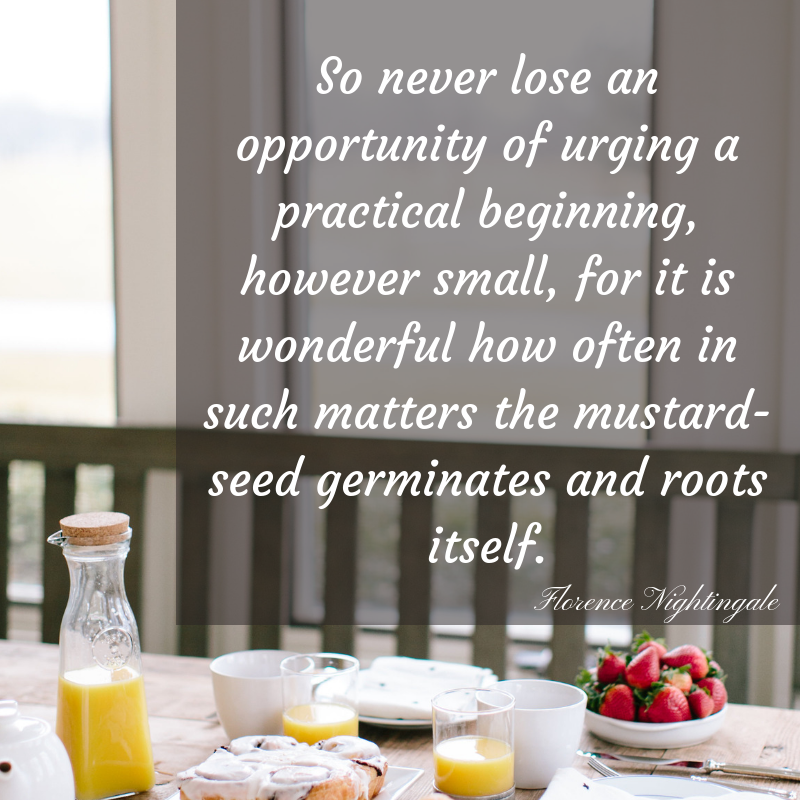
No matter what you give in your nursing career, there is the possibility of doing something great and wonderful.
You don?t need to solve massive problems to make a difference. Every patient you touch, you have the capacity of impacting their lives and making a difference.
As a youth, Florence spent time helping the infirm and doing the ?lowly? menial work of laborers. This experience cemented her passion and made her calling clear.
#15 I am of certain convinced that the greatest heroes?

We put heroes on pedestals, but we define heroes as someone who has done something outstanding. As nurses we are all by definition heroes, though we tend to dismiss it.
We normalize our everyday function without the benefit of knowing what we do makes such a difference to others. Consider approaching each day believing you are a hero to the lives you touch that day and see what kind of impact it has on you and those around you.
Florence was born of a wealthy family with the expectation that she become domesticated. She defied her given role to pursue the ?lowly? job of nursing, which led her to her amazing life. She believed her life as a nurse was the most heroic endeavour she could have imagined.
How Florence?s Words Can Inspire Your Work
Florence Nightingale?s quotes still resonate in the challenges that nurses face everyday.
I hope her story and her inspirational words will give you a needed boost so you may confidently step up to the challenges or goals that you face.
Use them to stay motivated as you start to set and achieve every the goals on your path to success. You?ll feel happier and motivated as you read and re-read them.
One way to keep yourself inspired is to write the quotes down in notebooks, pin them in your locker, post them around the unit so all the nurses and anyone who comes to the unit can benefit. You?ll be amazed at how powerful a quick reminder of her words can change your mindset.


